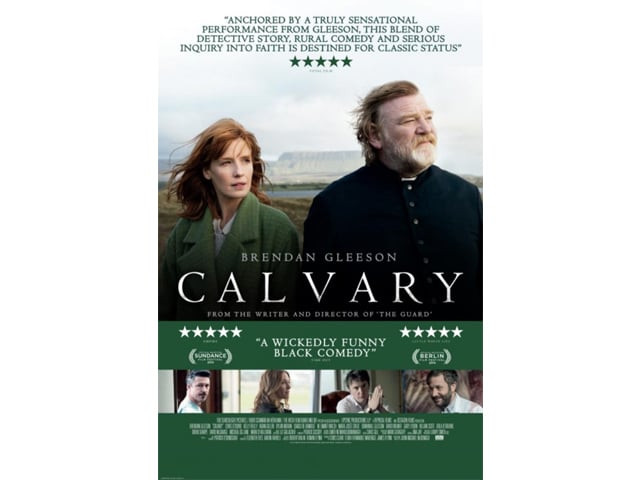Movie review: Calvary - a holy end
What happens when you are killed for doing nothing wrong

Calvary tells the story of Father James Lavelle, impeccably played by the towering Brendon Gleeson, as he spends what will be his last week alive as per the revelation of a parishioner in the confessional. The unnamed and out of sight parishioner confides in Lavelle that he was sexually abused as a child and is out to take revenge by killing him. Why him? Because Lavelle is a good priest and this murderous act of revenge would prove far worse to the church than killing a bad priest. The parishioner has given the magnanimous priest a week to sort his affairs which sets in motion the events that will lead to the ultimate act as a father and a priest.
In the week that follows, Lavelle meets his parishioners — played by an ensemble cast of notable Irish and international actors such as Chris Dowd, Kelly Reilly and Isacch de Bankole — and tries to be the voice of sanity as he investigates the identity of the murderous parishioner while trying to make amends with his chronically depressed daughter. An adulterous wife, an African car mechanic, a butcher with a penchant for domestic violence and a homosexual millionaire are just some of the garden variety crisp characters that McDonagh peppers the country of Sligo with for your cinematic amusement.
Meanwhile, Lavelle tends to his sick dog and tries to get his suicidal daughter to open up to him about slashing her wrists, which she is apparently not doing right. It is this juxtaposition of wry, rambunctious matter-of-fact statements from well-developed characters that leave the audience with a wry smile on their face. The final nail in the coffin one presumes would be Lavelle watching helplessly as his church is burnt to ashes. However, a man’s soul is more forgiving than his mind and, in the end, Lavelle calls his daughter and finally makes amends. As the day of his scheduled execution draws near, Lavelle quietly struggles to summon the courage to face his ultimate fate.
The juxtapositions and metaphors are carried forth in the visuals as well. Cinematographer, Larry Smith, paints the canvas as bright, wide-open spaces with lush greens and interiors as warm golden browns. The lighting plan is aptly fitting of the dichotomous situation, highlighting the inner turmoil of the virtuous priest as his life falls apart.

McDonagh rarely disappoints as a writer, penning Ned Kelly and The Guard before Calvary. He wanted to make a movie that was more forgiving of priests amid the global uproar as sexual abuse allegations began surfacing, and forgiveness may just seep through after watching this gem.
Rating: 3.5/5
Vivian J Xavier is a cinematographer. He tweets @vivianjxavier
Published in The Express Tribune, Sunday Magazine, August 24th, 2014.



















COMMENTS
Comments are moderated and generally will be posted if they are on-topic and not abusive.
For more information, please see our Comments FAQ